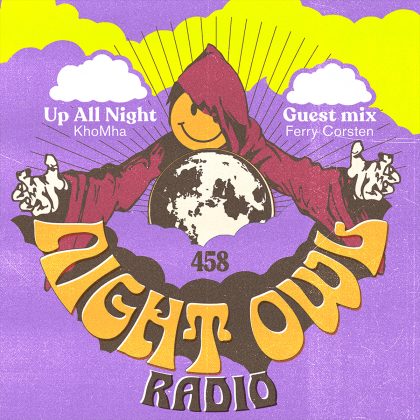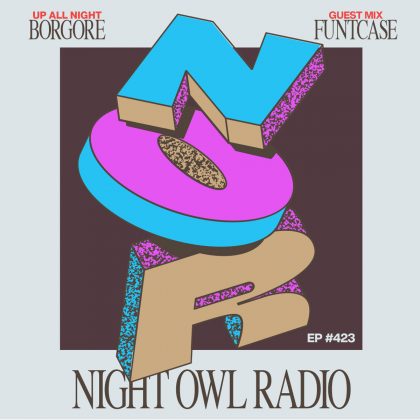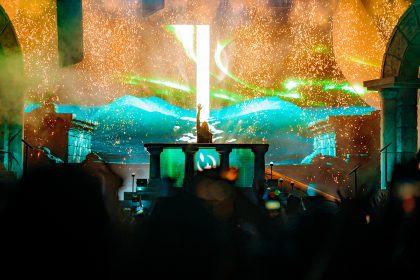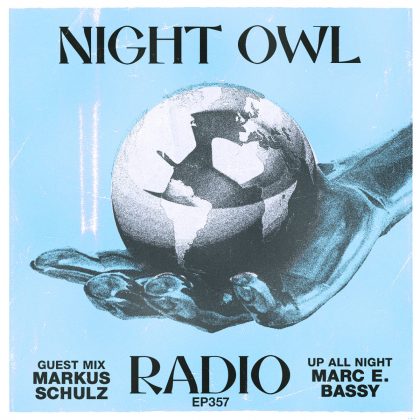A Round-Table Discussion With Ferry Corsten, Dimitri Vegas & Like Mike, Martin Solveig, Oliver Heldens, Markus Schulz, and More
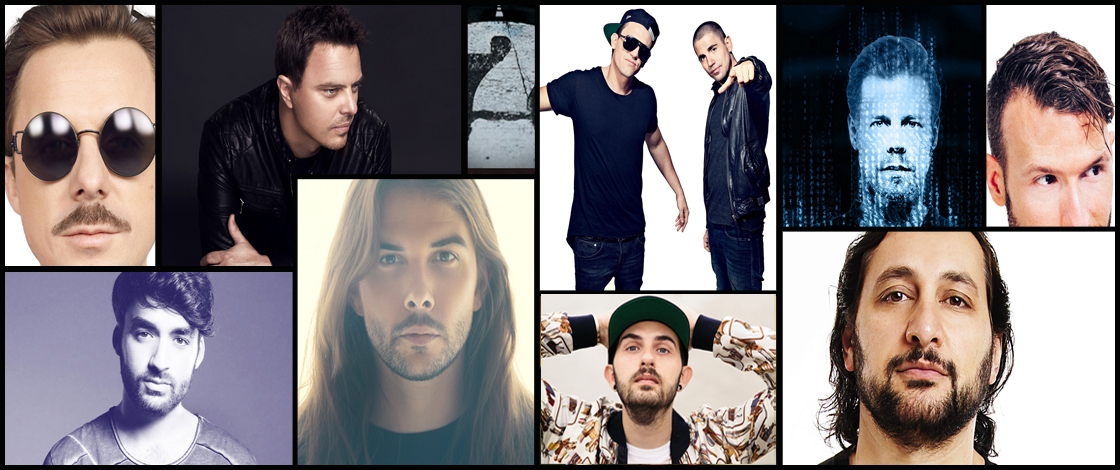
Upcoming Event
We image, now that summer is here, that you’re traveling more than ever. How do you keep yourself from becoming mentally drained due to the constant cycle of airport to hotel to gig?
Martin Solveig: I try to not think about it too much. I’ve also decided to cut down the number of shows I’m doing to get real recovery days and enjoy the ones I end up doing more.
Don Diablo: The only thing that keeps me going is the music—pure love for the music—and the drive to want to share this passion with as many people as possible. It’s really incredible what adrenaline can do with your body and brain.
Ferry Corsten: Summer is usually the same as the rest of the year for me. I always try to find a right balance between sleep, work, and free time on the road. When I’m home, I try to spend as much time with my family as possible and really absorb being home.
Dimitri Vegas: You’ve got to be smart and know your limits; we tour pretty hard all year long, so you need to work downtime into your schedule. For us, downtime is being in the studio, or gaming with friends, or simply chilling at home watching a movie.
Like Mike: Eating well and maintaining good health is important when you lead a busy life on tour all the time. We’ve being doing this for many years now, so we’re used to it. But it’s easy to let it go and start living off junk food and drinking too much, which is never good on the body.
Oliver Heldens: It’s sometimes difficult to deal with the jet lag and going from one plane to the other, but I’m not complaining! I try to catch up on sleep whenever I can, and it also really helps that I love what I’m doing—it makes it less exhausting.
Seven Lions: I am fortunate enough to travel with my wife, so we try and make traveling as fun as possible. I think being mentally drained is just part of it all, but having someone to help bear the load is amazing. Sometimes we just laugh at how fucked up it all is at 4am in the airport, and then we just keep going.
Sharam: I try to get as much as sleep as possible in whatever capacity—quick nap at the airport lounge, crunched against the window in fetal position on the flight, or in the hotel room—even if it’s only a few hours. Of course, this is more difficult with a hangover pounding at you. I try to drink as much fresh juice and organic smoothies as possible to balance the alcohol and inevitable liver damage.
Borgore: I go rock-climbing. My tour manager is my best friend. I listen to good music, I stay in touch with my family, and that’s pretty much it.
Markus Schulz: Jet lag is the biggest enemy for us traveling so often, and it was one of the biggest influences toward making Miami my home. After my two-year sabbatical and period of rediscovery living in London, I had to make a decision on where I wanted to have a permanent home. I knew that if my career was going to take off internationally, leading to more opportunities in Europe, I needed to be somewhere on the East Coast, in order to cut down on the number of hours spent on planes for transatlantic flights. And with the warm weather and a well-respected scene with roots, Miami became a natural choice.
Following on from that, I took extra measures to avoid jet lag by renting an apartment in Berlin, meaning that if I had gigs on successive weekends in Europe, which is very common due to festival season and Ibiza in the summer, then a short flight to Berlin—as opposed to a longer one to Miami—would become quite beneficial.
Does it bother you that artists today are almost required to have a strong social media presence and a heavy interaction with fans? Is this something you’ve had to adapt to? How do you deal with online criticism/haters?
Martin Solveig: If you think about it, it’s been like this since the beginning of pop music, with the Beatles and Elvis. The internet and social media accelerate it today, but it’s the idea that you can’t separate musical talent and the personality of the artist. I take it as a game, and I do it naturally. I don’t have haters, which is too bad, because internet beef is fun—but I guess I’m too polite for this. It’s not in my nature to play or be the bad boy on Twitter.
Don Diablo: It doesn’t bother me at all; it’s actually very exciting and has opened a lot of doors for me, personally. Social media really shows the true personality and creativity of artists nowadays. It’s made it easier to differentiate real artists from fake artists, so to speak. I also love being in direct contact with my fans; it tells me what I am doing right and what I need to improve, and it also gives me good vibes when I feel down. Luckily, for some reason, I am not getting a lot of hate right now, so I feel blessed. When I do get hate or criticism, I either learn from it, or when it’s nonsense, I just let it slide off my shoulders. There will always be people who think they can do better.
Another plus side of social media is the fact that sometimes it’s hard for promoters to see how popular or relevant an artist really is; looking at social stats and engagement can be very helpful with this. If an artist has lots of likes on his page but no engagement, then you can draw your own conclusion.

Ferry Corsten: Sometimes it does. I’m a very private person. Doing what I do week in and out is already public enough, so it can be tough for me at times having to constantly share myself and my private life. I’ve learned over the years to take the online criticism with a grain of salt. There will always be haters out there who will hate for the fun of it. Having said that, when there is a grounded criticism, I take an interest in it. But if it comes from someone who absolutely doesn’t know what he is talking about, I can only laugh at it.
Dimitri Vegas: Not really. It’s part of every day for us. We enjoy using social media; it is part of the job—we know this. Of course, it can add to an already busy schedule, and that can be tough. But no one is forcing you to do the press or play the shows; you do it because you want to.
Like Mike: We don’t pay attention to the haters. Whatever you do in life, there’ll always be haters; it’s just the way some people are built. We’re doing our own thing. If you love it, then great; if you don’t, then that’s cool, too. We know the ones that share the same passion and love for the music that we do, and those are the only ones we care about. Life’s too short to worry about what others don’t like about you.
Oliver Heldens: I think social media is a nice way to connect with your fans and a great tool to communicate directly with them. My favorite app is Snapchat, since it’s an easy way to show everyone what I’m up to. As far as the haters, I try to not pay too much attention to it. There will always be criticism, and not everyone will like you. You just have to learn how to deal with it and not take it personal.

Seven Lions: Yes, honestly, it really bothers me. I am a computer nerd/musician and not a publicist or marketing person. It’s amazing how quick people can blow up with just a great marketing plan or a gimmick and not really have much musical substance. The big thing for me is not to try and compare myself to acts like that. At the end of the day, we are all just entertainers, right? So, while I wish social media wasn’t such a key factor, I can only be me and do my best. As far as criticism goes, I think it’s human nature to focus on the bad things that people say—100 good reviews, 1 terrible, and the terrible one will be the one that stays in an artist’s head. In some ways, I’ve gotten used to a lot of heat for putting out new music, because I’ve always triggered people by messing around with genres. I’d like to say it doesn’t bother me at all, but sometimes it does. The nice thing is, I have my dog Khaleesi, who will love me no matter what genres I blend together.
Sharam: I’m a very private person, so I keep the posts to work-related stuff: music, gigs, and friends from the industry. I try to keep it fun for myself and for the fans, and balance the “promo” with useful info, fun stuff from the gigs, or just plain funny content…. As for the criticism, it’s lonely at the top. You sign up for it, and with success comes animosity and hate. Spray some Teflon on your record boxes, and keep pushing forward.
Borgore: The whole social media thing, that’s what I made my career off of. For two to three years, I toured without a label, without a manager, nothing, just from my profile on Facebook and MySpace. The day I wake up and the haters are gone is the day I’ll be worried, because it means I’m not relevant.
Markus Schulz: I think it’s important that throughout our careers, we should make an effort to give back to those people who have supported you… It’s largely a lot of fun, and it’s cool with more and more video applications, such as Facebook Live or Snapchat, that the fans can feel as if they are part of the journey with you. When you’re struggling with the demands of the road, the messages of support from the fans—those words where people are going through difficult personal times yet your music is helping them to heal, survive or be inspired—mean absolutely everything… But in many respects I think it’s an extremely valuable outlet, because along with the reactions you see in the clubs or at the festivals, it is one of the best methods in determining whether or not you are musically on the same frequency as your followers.
Do you do anything specific to stay physically healthy on the road?
Martin Solveig: I try to stick to the basics: sleep when I’m tired, eat when I’m hungry, and run when there’s a gym or a jog trail. I’ve realized recently that the most important thing is sleep. If you sleep six hours, the rest should follow nicely. It’s not always possible, so that’s why I’m doing less shows.
Don Diablo: I don’t drink, smoke, do drugs, or eat fast food. I try to sleep at least three to four hours every night, if possible, take vitamin pills, and I drink a lot of water and green tea.
Ferry Corsten: When I’m on the road longer, I bring my running shoes and try to visit the gym. Besides that, like I said before, a healthy balance between enough sleep and active life is very important.
Dimitri Vegas: Eat healthy, work out, and keep a focused mind on our musical game plan. We know our goals and what we want to achieve for ourselves and to share with the fans.
Oliver Heldens: I try to eat my vegetables, like my mom taught me!
Seven Lions: Lots of water, no drugs, limited drinking, and sleep whenever I can. Food is also really important. When I first started touring, I was eating all kinds of crap food. And then after a while, I went with as strict of a paleo diet as I could do on the road, and it really helped. I am not a diet advocate or anything; I just think it made me more conscious of what I was eating and helped me to get my shit together.
Sharam: If I have time, I play basketball or tennis or soccer with friends or my tour managers. But timing and schedule on the road is usually not conducive to that. So, I just drink a lot of healthy stuff instead. I hate going to the gym and getting on the treadmill and lifting weights. I like to do sports. So, I save it for when I’m back home.
Borgore: I think I mentioned it already, but I love to rock-climb. Every time I’m in a new city, I check out a new climbing gym. I like to climb before my shows, to center myself.
Markus Schulz: When preparing for the open-to-close solo sets in particular, where I play all night long for anything up to 12 or 13 hours, I’ll eliminate coffee from my diet a few weeks out. And when working out, I will make more of an emphasis on cardio, including playing basketball… My golden rule when DJing is never to consume alcohol during the performance, because I feel that the fans should expect someone in their workplace to perform professionally. This is especially vital during the open-to-close sets, because they truly are marathons on the body, and drinking alcohol will only dehydrate and be a hindrance.
Being a DJ and doing what you do for a living, what are the three biggest factors that affect your personal health and well-being on the job?
Markus Schulz: Discipline. When you get to a certain level of touring, there’s no way you can afford to take on a life of drink and drugs, because quite simply, your body and career won’t survive… The fans are paying their hard-earned money and expect you to deliver a professional performance; you owe that to them. There have been a couple of occasions where I was on a touring schedule for a festival stretch with multiple DJs, and some missed out on playing in a city because they partied hard the night before and missed their flight the next morning.
Dedication. It’s a life’s undertaking. There is always the next project on the horizon—the next gig, the next production, the next radio show… As long as you keep yourself well organized, then it doesn’t feel as daunting a challenge; it feels more like a day-to-day routine.
Rest. Once every few months, I will have a “switch off” day—usually a random Monday after being on the road. I’ll turn off the laptop and the phone, and generally try to decompress. If I can get one of those days in without distractions, it’s helpful to recharge and get back on the grid again.
Martin Solveig: Sleep would be the first, time for myself to listen to music and watch movies, to feed myself creatively, and a glass of red wine at dinner.
Don Diablo: Lack of sleep is probably the biggest killer. Secondly, a very irregular diet and lots of hours up in the air also takes its toll physically. And last but not least, a huge quantity of daily stress. I am a perfectionist, so I am 100 percent involved with everything I do. Besides making my music and touring the world, I still do all my social media myself, run a record label, a merch line, do a weekly radio show, and produce all my own music videos as well. Add to this a big stack of paperwork and trying to keep communicating with my fans, my management and agents, as well as the artists on my label—you can image it gets pretty hectic.
Ferry Corsten: Sleep deprivation, stressful situations, and not enough time in a day to do what I need to do.
Dimitri Vegas: Between the irregular sleep pattern and large amounts of traveling, it messes with your body clock—but it’s a nighttime business, so you’ve got to be used to working nocturnal hours. Also, your ears are important, and loud music is a constant part of being a DJ, so be wise to how you expose yourself when in clubs and festivals.
Seven Lions: Sleep. Whether or not the travel day was good or bad, whether or not I get a few minutes to myself.
Oliver Heldens: I guess your mental health is very important, trying to get enough sleep, and I think eating healthy also really contributes. If you get sick, this holds you from being able to do your job.
Sharam: Lack of sleep, and drinking. I don’t do drugs, but I make up for it with the drinks, lol! I recently went on a two-month booze-free cleanse, and it was great; I feel amazing after it. However, it does get a bit challenging at the club. I absorb energy from the crowd, and from friends around me, and when everyone around you is ripped and you’re sober, it can get annoying.
Borgore: Being in airports all the time, sitting on a plane for 12 hours, eating shitty airplane food, and not sleeping too much. I think those are the key issues that wear on people.
Whom do you call or lean on when you’re having a bad day?
Martin Solveig: When you have my life, it’s difficult to complain. Some of my friends have real problems, so I try to spare my entourage the DJ complaints and bullshit.
Don Diablo: My mom. Always.
Ferry Corsten: My family, for sure. I call them a lot, FaceTime a lot. Nothing puts a bigger smile on my face than seeing my kids running around and having fun. Sometimes I also use a bad day to get in the zone when it comes to producing music. That way, I turn a bad day into a good day.
Like Mike: Probably our manager!
Dimitri Vegas: Yeah, he’s probably the first person if there’s ever a problem.
Oliver Heldens: Sounds a bit cheesy, but my mom has always been my biggest support system. She is very involved with my career and also comes with me on the road a lot!
Seven Lions: My wife is the main person for me, but I have always been very self-sufficient, as well. I am pretty good at turning off my emotions altogether when I need to—like a safety shut-off valve.
Sharam: Family and friends—mostly my core friends. There are a couple of people in the industry that I can rely on, too. Also, my tour managers. They’re awesome people that I can talk to.
Borgore: My family; I’m really close with them. Even though they live in Tel Aviv, we talk all the time.

Markus Schulz: I am incredibly fortunate to have an in-house team in place that has been with me for over a decade now… These people are friends above being colleagues, and it’s reassuring to have them to lean on every single day—especially those occasions when you go through tough times on the road, get frustrated in the studio, and so on.
One of the biggest benefits I have found starting the New World Punx project with Ferry Corsten is that because we spend a lot of time on the road and in the DJ booth together, our friendship has also been fantastic as an aid for difficult days. Naturally, Ferry would be the first DJ in my circle I would be in touch with if there was somebody I wanted to confide in.
How, if at all, would you like to see the DJ community become more supportive of mental health issues?
Martin Solveig: Well-being and a healthy lifestyle is a challenge for the 21st century; this surpasses the DJ community.
Don Diablo: I think it’s going to be very hard to do something about this as a community, because we are still very much divided into many different islands. I know a lot of DJs are battling with depression because of the daily pressure and expectations from everyone around us. God knows I have surely seen many dark days myself. It’s definitely been an uphill battle to get where I am right now. You have to set your ego aside and be as humble, patient and forgiving as you can.
Ferry Corsten: Honestly, I think we are lucky to be doing what we do. It’s not always easy, and as a way of life, it can be very demanding on you, both physically and mentally. But there’s more awareness of this now, and the scene is starting to understand the issues that can be the cause of mental health within the electronic community.
Seven Lions: I very much believe it is the individual’s responsibility to take care of their own mental health. The thing is, mental health issues are behind the curtain; it’s really hard to know when people are struggling. If people need help, then they need to ask for it. I am not at all ashamed to say I had to seek out a counselor when things really started to get going for me. It’s a lot of responsibility all at once, and for a while there, it was really hard for me. I am very much a homebody; I intentionally don’t have a lot of friends, and I take my social interaction in small doses. So, this lifestyle was a really big change very quickly, and I needed help.
Sharam: Constantly being surrounded by drugs and alcohol can absolutely become problematic and lead to serious health issues. It may sound insensitive, but I think people just need to keep it together and learn not to abuse the fun. Life is all about balance. Are there DJs who suffer from mental health issues not related to substance abuse? Sure, but honestly, I have no experience with it and don’t feel qualified to talk about it.
Borgore: I think everyone in the world is low-key depressed, because we live in an existentialist world where we cannot change things—like the fact that we are all going to die. We just cannot change it, so it’s just kind of depressing. But I don’t think DJs are necessarily more depressed than anyone else; you can work a 9–5 job and still be depressed. I think the question is not how to help depressed DJs; it’s how to help the depressed society which seems to get more depressed every year, because look how many people are doing drugs and doing alcohol and losing their shit, especially on social media.
Markus Schulz: Absolutely, we should. I think, however, that it begins with personal responsibility… One of the greatest facets of our scene is the sense of community. There are people out there who do care about you and are willing to lend an ear and listen to any problems someone is encountering.
Do you feel it’s the industry’s role or responsibility to provide health care or support?
Martin Solveig: Everyone can play a part.
Don Diablo: Honestly, no. I feel it’s the industry’s role to look closely at the details: Which artists have a real solid fanbase, put real work into their music, and deserve to get a spot on their festival or a release on their label? Which DJs and producers are actually making an effort to push things forward while still being able to entertain a large amount of people? That’s what the industry should be doing to keep this scene healthy, rather than keep on supporting artists who are basically pretending to be something they are not. This also demotivates people who are willing to take certain risks, because they are working hard day in, day out… but they feel stuck in a vicious circle they can’t get out of, because they feel they will always be overlooked, and this weighs heavily on their creativity, as well as their mental health. The same goes for established artists, for that matter; they also have lots of internal issues to deal with. It’s not easy to stay at the top and to basically be on top of your game 24/7.
Borgore: I think that that specific case of the one or two or three or 10 people that cannot tour because they are depressed—it can be in any other field, honestly. You have nice houses, you have nice cars, living your whatever f***ing dream. Even if you don’t have a big house and nice cars, you sit at home and make music, and that’s what you enjoy doing. I love making music; it’s how I make my money… so how can I complain about that? If I’m depressed, it’s not because of my job, it’s because I have mental health issues.
Ferry Corsten: The music industry has many pitfalls, and it’s easy for people to fall into those potentially harmful areas—especially the newer, young guys coming into this. I think the more support and awareness we can bring to these types of things is only going to be a positive for the wealth of those who may eventually suffer with healthcare issues. The electronic scene is one of embrace and unity, and I see no reason why mental health shouldn’t be considered within the way we support one another.
Like Mike: Any industry of this size has a responsibility to give those working inside it more encouragement with any issues they may have. How this is possible is something we as a scene need to review and find a way to improve the options available.
Oliver Heldens: I don’t know if it’s their responsibility, but I think it’s important to educate people on this topic and to provide support whenever needed.
Seven Lions: I think it’s everyone’s responsibility to lighten up on people when they can and try and be supportive and uplifting, not exclusive to any industry. With our industry in particular, it is really all up to the artists themselves. I have the power to say no to a tour or a show. I can turn off my phone and email at any time. I don’t need to go to an after-party to mingle and climb the ladder, and I know everyone else has that power to do or not do that as well. We can choose what’s on our plates, and sometimes you just need to say no when things make you uncomfortable.
Sharam: How can they? The “industry” is not like NBA or NFL or an organized institution like a union that can provide assistance and healthcare and negotiations, etc. Our industry is a collection of fragments, all operating with their own personal interest in mind. I would be a fan of creating something like that—like NARIS and the Grammys. Create a community, collect some dues, and provide useful services. I can see that working.
Markus Schulz: Could DJs form a union where each of us donates a certain amount each year toward a centralized support system? I suppose it’s something that could be considered. I do think, however, that there should be awareness toward mental health issues spread among the community as a whole—for not only DJs, but promoters, staff and fans, too.
What would you say to your fellow DJ or producer wanting to speak out but is afraid, due of the stigma and discrimination toward people with mental health problems?
Martin Solveig: I certainly won’t judge you.
Don Diablo: There is nothing to be ashamed of. For me, personally, it’s more respectable to struggle with internal issues, because this means you actually care about what you do and what you stand for, in a big way. It also shows you have passion, insight and self-reflection. It’s the careless people you have to watch out for. As an artist, you should always strive to get better, no matter how hopeless your situation might seem; you have to keep believing in yourself, always. There is no elevator to success; you have to take the stairs.
Ferry Corsten: As a fellow DJ, I understand the demands this industry can put on you as a touring and recording artist. Often the pressure can be too much. So, I would say, don’t be afraid to speak to those around you. There’s a network of people within our industry who understand the seriousness of mental health and may be able to offer guidance, help, or simply be a person to speak to when needed.
Dimitri Vegas: That they “shouldn’t feel concerned to reach out to those around them.” As a culture, dance music has always been very open-arms to many problems that other scenes and industries face, and we for one feel, and hope, this is the same for mental health. It’s a difficult industry at times, but it’s one that should stand united on issues like this and definitely offer whatever support necessary for those who need it.
Oliver Heldens: I would like to say that they are not alone. There are a lot of people struggling with mental health issues, and it’s not something to be embarrassed for. Share it with someone you trust, and try to get help.
Seven Lions: Don’t be afraid. Opening up and being human is what it’s all about. We ALL have issues, and if anything, we can relate to the people who enjoy our music even more when we open up about it.
Sharam: Personally, I’m not aware that this is such an epidemic in our industry. I did read about Benga coming forth with his health issues, and I found it brave and personally inspiring that he talked about it. Kudos to him for doing that, and I wish him all the best. He is such an amazing talent. If someone has mental health issues, it only makes sense to talk about it, privately or publicly, if you think it will help people who can relate or inspire change.
The problem with today’s society, especially in America, is that it’s hard to tell the truth or disagree with an opinion. People are scared to break out of what they think society “expects” from them, or they’re hiding behind the PC veil. If you have a strong opinion, it’s impossible to express without someone getting up in arms because they disagree. You get tried in the court of public opinion in a matter of days. And sometimes that makes people or entities afraid to associate with you. It’s like the freedom of speech is being taken away from people by the people. I can imagine with that much pressure, it’s hard for people to go public with personal matters like mental health issues or other issues.
Markus Schulz: I would encourage it, because the worst thing anyone could do in that situation is to remain silent and allow things to bottle up inside even further… Regardless of what genres we represent, we are all human beings doing the same thing at the end of the day, and if anyone out there was struggling to cope, then I would encourage them to get in contact with fellow DJs, starting in their circle and stretching further afield if necessary, because they can relate to the same experiences of life on the road. In instances such as these, sharing your experiences and endurances with others very much is caring.








